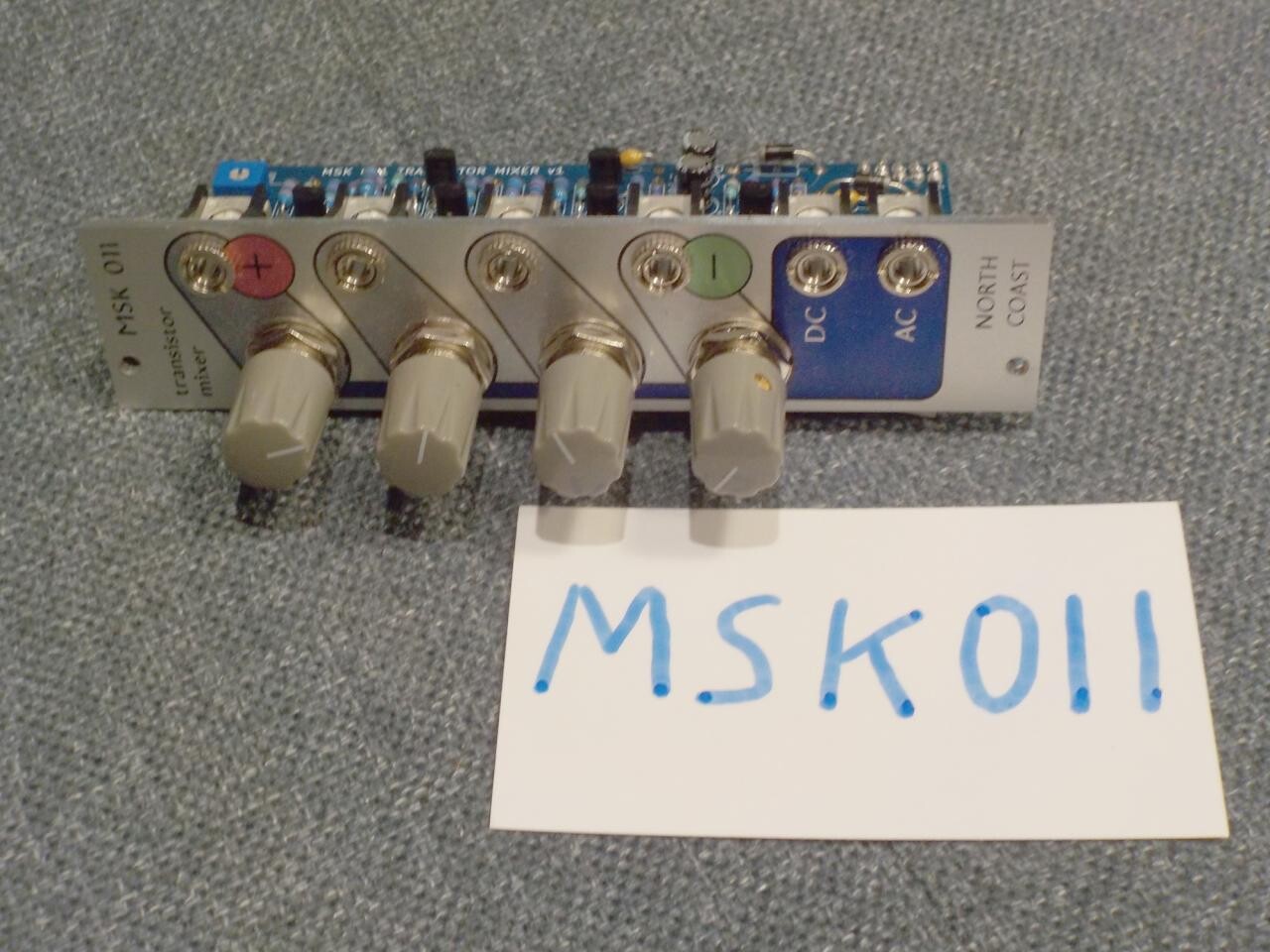Transistor Mixer press release
FOR IMMEDIATE RELEASE
New mixer from North Coast uses only six transistors
TORONTO, Ontario - April 3, 2018 - North Coast Synthesis Ltd., Toronto-based manufacturer of electronic musical instruments, today released its Transistor Mixer, a four-channel utility mixer for Eurorack modular synthesizers. At 6HP width, the new module is suitable for both audio and control voltage processing. Its minimalist design features only six transistors, but still includes extra features like offset generation, separate AC and DC outputs, and distortion.
"We're a bit spoiled now that chips are cheap as, well, chips," says North Coast module designer Matthew Skala. "People can afford to throw dozens of integrated transistors into even the simplest analog projects. Millions, for digital. With this one I'm trying to get back to the style of classic designs where every speck of silicon was made to really count."
The term "chips" in an audio mixer usually refers to integrated circuits containing operational amplifiers, or "op amps." An op amp chip would typically contain between ten and one hundred transistors built into a single piece of silicon. Designers use these ready-made building blocks to save time and expense in constructing larger circuits. Circuits made out of so-called discrete transistors, one at a time, require a more manual design approach with attention to every transistor.
"I'm not convinced that discrete transistors really make an audible difference," says Skala. "There's a lot of mumbo-jumbo on that issue in the audio world. But they certainly made the module fun to design and build. There's something very nice, and you can see it even in the circuit diagram, about having only a few parts and being able to describe exactly what each one of them is for."
North Coast sells the MSK 011 Transistor Mixer on its Web storefront for $210 Canadian including shipping (assembled module), or $140 for a do-it-yourself kit.
◀ PREV Modular synthesis intro, part 10: Analog oscillators || Frequency, latency, and uncertainty NEXT ▶

